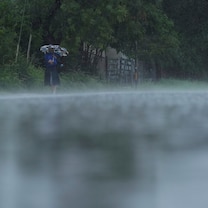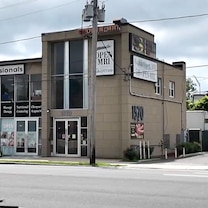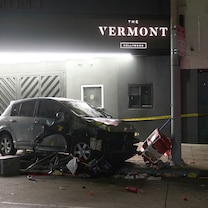Government Tries to Ease Stress of Holiday Travel
President Bush hopes to avoid a travel nightmare. Will proposal work?
Nov. 15, 2007 — -- Hoping to alleviate a chaotic holiday travel season, the White House announced Thursday that the military would open air space for commercial airlines over the five day holiday period.
"The U.S. military is going to make more air space available for civilian airliners this holiday season by opening up a Thanksgiving express lane," said White House spokeswoman Dana Perino.
Additionally, Perino said compensation to passengers bumped from overbooked flights would double the previous compensation, currently $400 or $800, depending on the extent of the inconvenience.
Around 4.7 million Americans are expected to take to the skies over Thanksgiving weekend -- up 2.2 percent from last year, according to the AAA. In the 12 days surrounding the Thanksgiving holiday, the Air Transport Association estimates 27 million passengers.
The past year has been the worst on record for aviation delays, and the White House efforts are aimed not only at the 2007 holiday season but at the 2008 summer travel season as well.
A White House official says the efforts are to "make sure next year does not duplicate what happened this year."
The president meets with Transportation Secretary Mary Peters and acting FAA administrator Bobby Sturgell this afternoon. President Bush is expected to announce short-term steps to ease congestion, including opening portions of military airspace to commercial flights to create additional highways in the skies.
For security reasons, this is the first time in five years that the Defense Department has opened portions of military airspace. These openings concern mainly the East Coast Navy airspace off the Virginia Capes and Jacksonville, Fla., and will occur only during Thanksgiving weekend, from Wednesday, Nov. 21 to the morning of Monday, Nov. 26.
At New York's John F. Kennedy International airport, an airport notorious for delays, the government is considering altering landing and take-off patterns to speed arrivals and departures.
Airlines are also trying to cater to passengers by allowing them to get off the plane if delays become unreasonable, although the decision to deplane the passengers is one made individually by the airlines.
Last February passengers of 21 Jet Blue flights were stranded on the tarmac during an ice storm -- one plane full of passengers was forced to wait on the plane for more than nine hours. Jet Blue's CEO, on Capitol Hill today, insisted the airline has made a host of changes since then -- including instituting a passenger bill of rights and doubling the number of its de-icing stations.
Today Bush will also call for more permanent measures by asking Congress again to pass a more comprehensive FAA modernization bill.
ABC News' Luis Martinez and Ann Compton contributed to this report.



